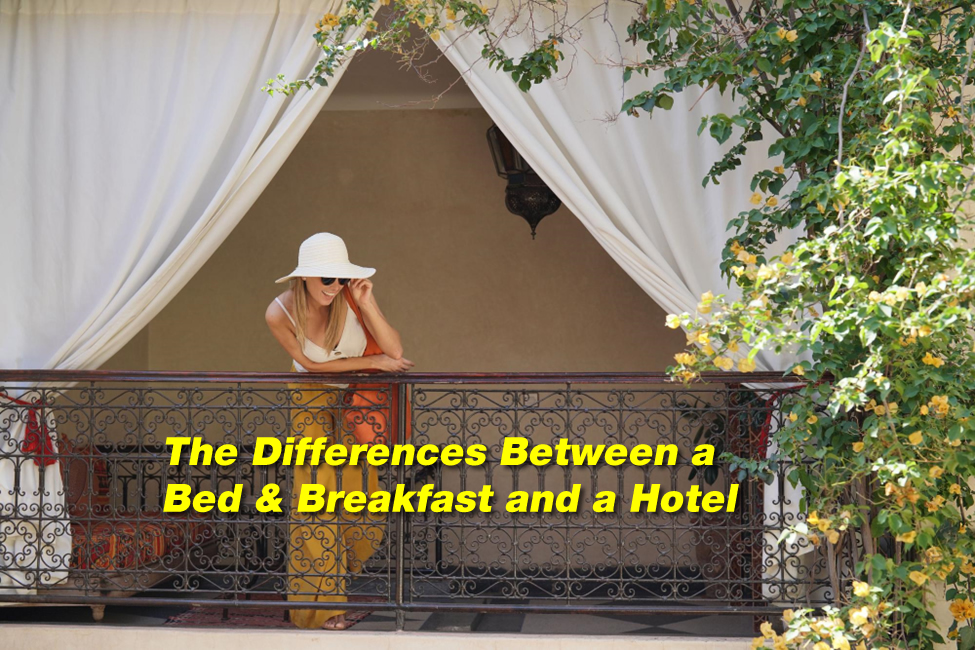The Differences Between a Bed & Breakfast and a Hotel
The Differences Between a Bed & Breakfast and a Hotel
Many well traveled people may have never stayed in what the travel industry designates as a bed and breakfast. There aren’t always many differences between the classic bed and breakfast and traditional hotels. A common misconception is that if a hotel offers breakfast, that may as well categorize it as a bed and breakfast lodge. Let’s drill down the most significant differences between these two types of stays.
What’s a Bed & Breakfast?
A Bed and Breakfast location is usually a tiny property offering overnight stays and homemade breakfast. They’re typically private homes or small companies. B&Bs are built around a feeling of lodging within a charming home that offers a highly domestic at-home atmosphere, almost as if you’re staying at the home of a friend.
What Constitutes a Hotel?
A hotel is a company or establishment that provides short-term lodging. Most hotels offer a wide range of extra curricular facilities and amenities open to guests. Many hotels can be small and homey, similar to the b&b. Size isn’t the defining distinction, but typically a larger establishment of over 25 rooms is going to fall under the hotel umbrella.
Differences Between a Bed & Breakfast and a Hotel
On the surface, both a hotel and bed and breakfast provide the same service: lodging. However, some differences make staying at these facilities entirely different. These are some of the significant differences between a B&B and a hotel:
- Number of Guests: The average bed and breakfast place takes no more than ten guests at a time. In comparison, a hotel has anywhere between 50 to 100 guests on any given night.
- Types of Rooms: The average hotel room comes with a coffee machine, fridge, microwave, desk, and TV. Bed and Breakfast rooms look and feel more like home. Rooms might have jacuzzis, couches, chairs, and other amenities that make guests think they are staying at someone’s home.
- Location: Most hotels are located near major highways or high-traffic areas. Some travelers prefer that, while others prefer a more laid-back setting off the beaten path that a b&b can offer. Most bed and breakfasts are located in suburban locations near local attractions or excursion areas.
- Food: If a hotel serves food, odds are it will be a continental breakfast. However, what makes bed and breakfasts so popular is their uniquely handcrafted cuisine. Here, meals are freshly made each day with premium choices to celebrate the guests and offer them a distinctive breakfast experience.
Both hotels and bed and breakfasts offer similar services that lend themselves to a certain type of customer. It all depends on the type of experience you’re looking for. Choose the bed and breakfast for a more personalized and cozy experience; opt for a hotel for a more traditional, corporate experience.
–
Geraldine Orentas is a writer in partnership with vacation rental accounting service, Ximplifi.




